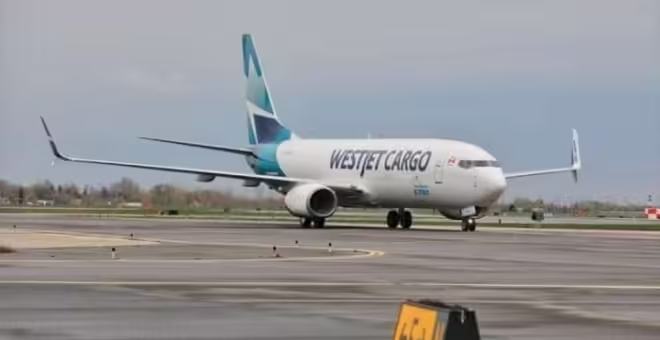
WestJet has adopted a new business model for its freighter operations after a challenging year in the cargo market. Originally, the airline launched its freighter division in April 2023, using Boeing 737-800 converted freighters to operate high-frequency shuttle services between major Canadian and U.S. cities. This was in response to growing demand from e-commerce and parcel delivery sectors. However, the market dynamics proved difficult, with intense competition from established players like Cargojet and Air Canada. Additionally, the air cargo market saw a sharp decline during this period, which hampered WestJet’s revenue potential.
As a result, WestJet shifted away from its initial plan of running regular freighter routes. The airline placed two of its four freighters into storage, while the remaining two were leased to Cargojet. These aircraft now operate charter services on specific routes, such as the Newark-Bermuda corridor, allowing WestJet to pivot towards a more ad-hoc, demand-driven model. This move also includes offering long-term rental options for freighter aircraft to other partners, focusing more on charter flights and partnerships than scheduled network services.
WestJet has retained some semi-scheduled routes, like the Toronto to Havana service, which runs based on demand. The company believes this more flexible approach will help optimize the use of its freighter fleet in the current market environment.